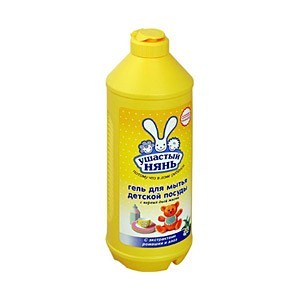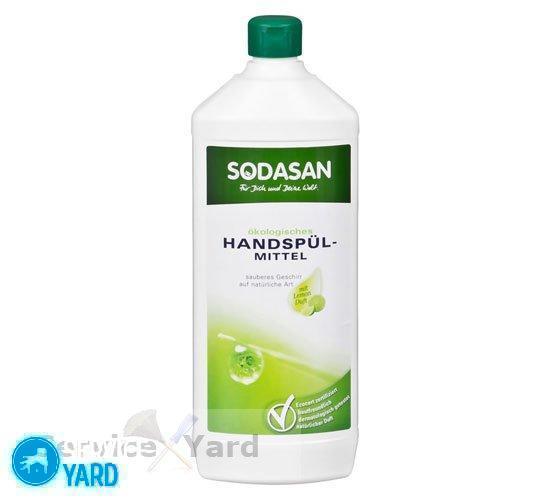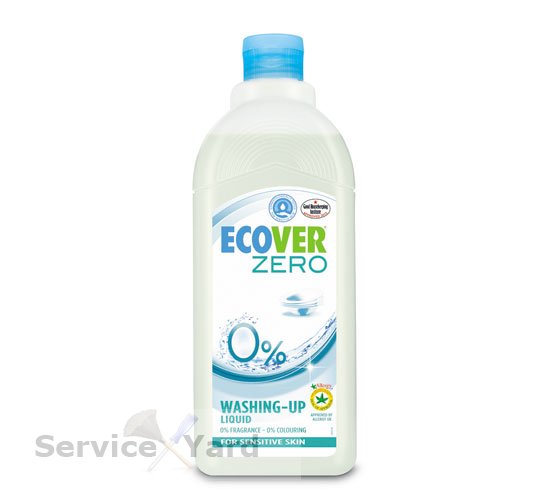Dishwashing gel

Caring for dishes - this is one of the most important and relevant classes for every day. Dishwashing gel greatly simplifies this process, but is it safe? If most chemicals cope with fat and germs with such ease, how do they affect our body? In this article, you will learn how to do without household chemicals when washing dishes. How to prepare an effective and safe gel for washing dishes from laundry soap or other ingredients yourself.
to contents ↑What threatens the constant use of chemical gels?
 All dishwashing gels in their chemical composition practically do not differ from washing powders. The composition of detergents includes the following components:
All dishwashing gels in their chemical composition practically do not differ from washing powders. The composition of detergents includes the following components:
- Alkalis. Their content affects the rate of breakdown of fats.
- Bactericides. Complex protein compounds are washed.
- Surfactant. They clean and protect dishes from further excessive pollution. They cover it with an invisible film, which is difficult to wash off, and which we absorb with food.
- Chlorine. Disinfects and removes all harmful bacteria from the surface of the dishes. In humans, it causes mucosal damage, headache, and respiratory problems.
- Stabilizers. Responsible for the formation of foam.
- Fragrances. Chemical elements that provide a pleasant aroma during and after application. Hard to wash off.
- Enzymes Destroy fatty pollution.
- Phosphates
- Substances that soften the skin, dyes and preservatives.
According to the results of numerous studies, the regular use of such funds can lead to serious diseases. Each of the components of household chemicals has a negative impact on humans. The consequences are:
- chronic bronchitis;
- asthma;
- poisoning;
- diseases of the gastrointestinal tract;
- liver and kidney;
- allergies
- dermatitis and other skin diseases.
to contents ↑Important! In many countries of the world, dishwashing gels with this content are prohibited and are not available. Manufacturers refuse to use these components or reduce their number to a minimum. We do not yet have such state control, therefore the responsibility for our health and well-being of loved ones is in the hands of each person.
How to make a gel for washing dishes with your own hands?
The use of natural remedies is safe and affordable. Most housewives actively and successfully use improvised drugs. They can be combined and get a real dishwashing gel.
Accessibility lies in the fact that everything you need for the preparation of cleaning liquids is at your fingertips. If suddenly something does not turn out to be, it can be easily purchased at a nearby store. We suggest you familiarize yourself with the preparation of several gels from natural ingredients.
Universal detergent
With this gel you can clean not only dishes, but also a sink, bath, tile and plumbing.
For cooking you will need:
- baking soda - 3 tablespoons;
- hot water - 100 ml;
- baby soap - 100g;
- any essential oil.
Recipe:
- In a large container, grate the soap.
- Fill it with water.
- Mix well.
- Add soda and oil.
- Mix well again.
Important! For mixing, you can use a mixer to achieve more uniformity of the mixture and speed up the process of preparing the gel for washing dishes.
Washing-up gel from laundry soap
This tool perfectly flushes fat and does not damage the skin of the hands. Those who already use it successfully assure: despite the fact that it is quickly consumed, the product is still profitable because of the cost of its components.
You will need:
- laundry soap - 25g;
- water - 0.5l;
- glycerin - 4 tbsp;
- vodka or alcohol - 1 tbsp.
- Rub the soap and pour a little water.
- Put in a water bath.
- Stir in the remaining water until the soap has completely dissolved.
- When the soap has dissolved, cool the mixture a little.
- Add alcohol and glycerin.
- Stir and remove the resulting foam.
- Pour the gel into a bottle and use as needed.
Gel-paste for the care of dishes
A simple and effective tool. Suitable for cleaning dishes and stove.
You will need these ingredients:
- water - 0.5l;
- laundry soap - 25g;
- soda - 1.5 tbsp .;
- mustard powder - 1.5 tbsp;
- ammonia - 2 tbsp.
The method of preparation of cleaning paste:
- Rub soap in hot water.
- Stir until dissolved.
- Cool a little and add soda with mustard.
- Shuffle.
- Pour in ammonia.
- Close the container with a lid to prevent ammonia from weathering.
- Leave for 3 hours.
- Place in a suitable container.
Important! Use ammonia in a well-ventilated area.
Mustard Cleaner Mix
One of the oldest ways to clean dishes is with mustard. They do a great job with grease and similar impurities. You will need a minimum of components:
- mustard powder - 1 tsp;
- water.
In preparation, follow these instructions:
- Pour hot water into a bowl.
- Dissolve mustard in it.
- Stir until foam.
- The tool is ready.
Important! To improve the effect, use this dishwashing gel with a sponge. All plates will creak with cleanliness.
Hydrogen Peroxide and Soda Cleansing Mixture
This mixture is great for glassware and similar surfaces. For convenience, you can put it in a spray bottle.
For cooking, you will need such substances:
- hydrogen peroxide - 0.5 tbsp;
- baking soda - 0.5 tbsp;
- water - 1 tbsp.
To properly prepare this dishwashing gel, follow these instructions:
- Pour in a suitable container of water.
- Dissolve soda in it.
- Add peroxide.
- Pour into a bottle.
What else do you need to know about do-it-yourself detergents?
Now you know how to make great cleaning products yourself. Like all drugs, they also have their pros and cons.
Pros:
- Ecological cleanliness. Do not clog the environment and do not harm health.
- Profitability. All components are affordable and inexpensive.
Minuses:
- Waste of time. You will spend more of your free time on the use of natural substances.
- Consumption. Do-it-yourself gel for washing dishes or other surfaces, as well as cleaning powders, will finish faster.
- Efficiency. Naturals are somewhat inferior in this criterion to chemical agents.
Stock footage
As you can see, preparing gels and powders for cleaning dishes yourself is absolutely not difficult. You have to choose what to save on - time or health.
- How to choose a vacuum cleaner taking into account the characteristics of the house and coatings?
- What to look for when choosing a water delivery
- How to quickly create comfort at home - tips for housewives
- How to choose the perfect TV - useful tips
- What to look for when choosing blinds
- What should be running shoes?
- What useful things can you buy in a hardware store
- Iphone 11 pro max review
- Than iPhone is better than Android smartphones




